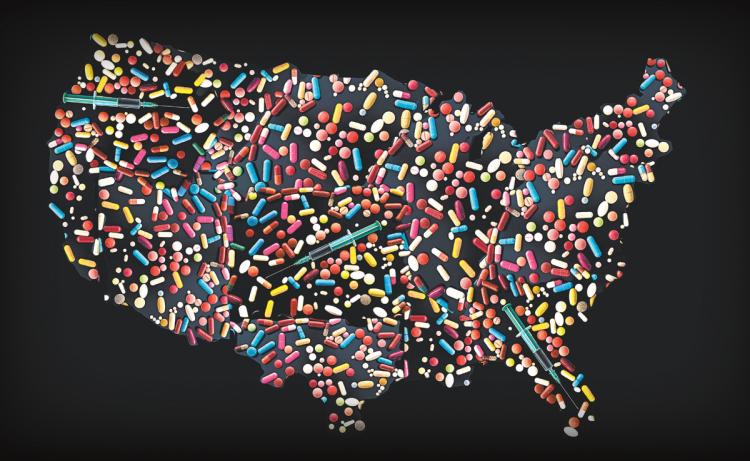Pharmaceutical companies have played a large part in the opioid crisis sweeping the country
November 8, 2017
A ceremony recently hosted in the East Room of the White House saw President Donald Trump address the widespread opioid crisis that has continued to ravage the country. The National Institute on Drug Abuse’s website states that more than 90 Americans die everyday from overdosing on opioids such as prescription pain relievers, heroin and synthetic opioids like fentanyl. It’s been reported that more than 59,000 people lost their lives to this epidemic in 2016 alone. Opioid drugs have become a perpetual issue in our society and it cannot be ignored that pharmaceutical companies may be heavily to blame.
The state of Ohio has the most deaths due to drug overdose in the country and a lawsuit was filed earlier in the year by its Attorney General Mike DeWine against pharmaceutical companies including Purdue Pharma, Teva Pharmaceuticals, and Johnson & Johnson.
An article posted on the Atlantic.com by Alana Semuels states that “The lawsuit accuses the companies of spending millions on marketing campaigns that ‘“trivialize the risks of opioids while overstating the benefits of using them for chronic pain.”’ The companies, the lawsuit alleges, lobbied doctors to influence their opinions about the safety of opioids.”
It’s unfortunately quite apparent that these company’s primary concern seems to be that of making money. In turn, they seem to show indifference when it comes to creating and distributing painkilling medication which do not have the adverse side effects that opioids do.
The aforementioned Atlantic.com article also states that “A Los Angeles Times investigation into Purdue Pharma, for instance, found that the drug maker, which marketed OxyContin as relieving pain for 12 hours, knew that the drug wore off before that time period. Since the drug didn’t last as long as promised, some patients suffered withdrawal, which led them to become addicted.”
The President announced several initiatives to combat this issue at the ceremony he held, one of these were instigating an elaborate advertising campaign aimed at convincing young people not to start using drugs. However, this and other plans he mentioned may unfortunately not be enough to stop this crisis from getting even worse.
President Trump neglected to declare the crisis a national emergency, which would have allowed for the pooling of federal funding specifically geared at tackling the issue–something he said he was going to do in August of this year.
An article by Julie Hirschfeld Davis posted on the New York Time’s website states that Senator Edward J. Markey, a democrat of Massachusetts, said “Instead of a commitment to emergency funding for our states and communities, President Trump offered empty words and half-measures. America is hemorrhaging lives by the day because of the opioid epidemic, but President Trump offered the country a Band-Aid when we need a tourniquet.”
There is no doubt that the President has made a step in the right direction by bringing much needed attention to this issue plaguing the country. Many of the directives he plans to implement may very well go a long way in helping to solve this problem. Nevertheless, if the country is to have any substantial hope of fully dealing with this, the main focus needs to be on dedicating a considerable amount of funds and resources to finding ways to resolve it, and pharmaceutical companies should be at the head of that charge.
These companies must be held accountable for their undeniable role in this drug overdose epidemic as hundreds of thousands of lives have been cut short as a consequence of the drugs they have created. It is important they realize this and aid in the efforts to put a stop to it. The onus is on them to contribute in funding research to create painkilling medication which will not end up causing more harm than good.




















